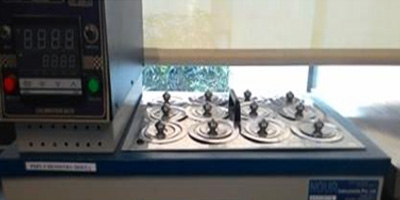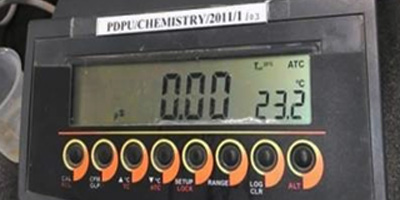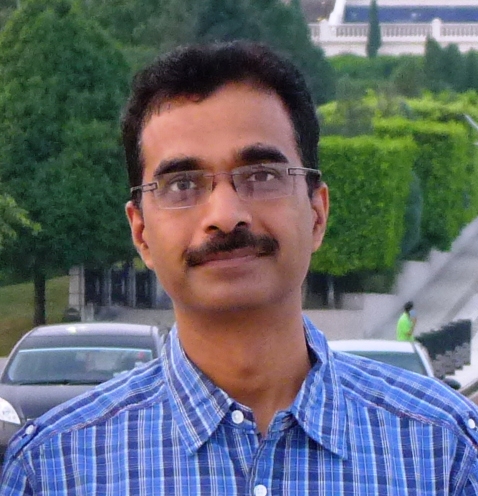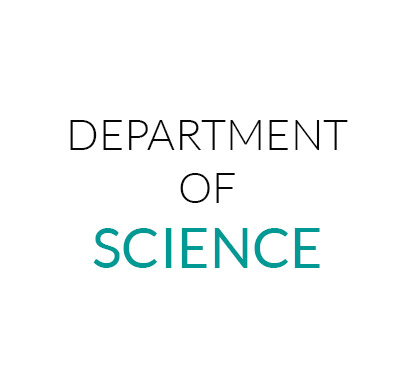



-
Instrumental Methods of Chemical
Analysis on 25th to 29th July, 2016
About Department of Science
Department of Science provides its students with the latest scientific knowledge, technology, innovative mind thinking approach and guidance which they embark upon in their careers.
It excels in the field of chemical and physical sciences. Science department provides various undergraduate, and post graduate courses. Also, it is highly active in the diverse areas of research (specialized and interdisciplinary areas).
Consisting of highly skilled faculty and equipped with high profile instruments,the department puts great efforts in bringing out the best out of their students.
Objective
Our Vision
“ The Department has a vision to graduate admitted students as life-long learners and leaders in the diverse science programs. ”
Our Mission
Department of Science of the School of Technology offers well-designed program curricula to provide in-depth knowledge related to the application of Chemical and the Physical Sciences and inculcate scientific temper to students interested in the Engineering and Technology.
In order to contribute and to provide assistance to PDPU to achieve its mission of academic excellence, the program integrates a judiciously-designed comprehensive curriculum and a research module for a sound academic, professional, and personal development of students.
Head of the Department
Dr. Rajib Bandyopadhyay
E-mail: rajib.bandyopadhyay@sot.pdpu.ac.in
Phone: 079-23275440

Dr Rajib Bandyopadhyay has been working in the School of Technology since October 2010. He received his PhD degree from National Chemical Laboratory (NCL), Pune in 1997. Later he did postdoctoral research in Japan (NEDO and JSPS Fellow) for four years followed by Germany (Alexander von Humboldt Fellow). Before joining PDPU, Dr Bandyopadhyay worked in senior management position in the R&D sectors of various multinational companies including Sud-Chemie, Owens Corning and Sika. He has more than 35 publications in peer-reviewed international journals and book chapters. He also regularly reviews journal papers from Elsevier and other publishers. He is a life member of International Zeolite Association.
Contact Us
Department of Science
School of Technology
Pandit Deendayal Petroleum University,
Raisan, Gandhinagar - 382007
Gujarat, India
Phone Number: +91 79 23275440
Fax Number: +91 79 23275030
Email: rajib.bandyopadhyay@sot.pdpu.ac.in
Course
Sr. No. |
Course Code |
Course Name |
1 |
SC 102T |
Physics |
2 |
SC 102P |
Physics Practical |
3 |
SC 103T |
Science in everyday life |
4 |
SC 103T |
Science in everyday life Practical |
5 |
SC 204T |
An Introduction to Atmospheric Sciences- Global warming and Climate change |
6 |
SC 205T |
An advance course in Atmospheric Sciences-Paleoclimatology and Meteorology |
7 |
SC 501T |
Classical Mechanics |
8 |
SC 515TA |
Vacuum Science & Thin Film Technology |
9 |
SC 503T |
Modeling and Simulation of Semiconductors |
10 |
SC 504T |
Semiconductor Processing & Characterization |
11 |
SC 502T |
Mathematical Physics |
12 |
SC 503T |
Quantum Mechanics-I |
13 |
SC 504P |
Solid State Physics Laboratory |
14 |
SC 504T |
Solid State Physics |
15 |
SC 505P |
Electronics and instrumentation Laboratory |
16 |
SC 505T |
Basic Electronics And Instrumentation |
17 |
SC 506P |
Programming in C++ Laboratory |
18 |
SC 506T |
Numerical Methods and Computer Programming |
19 |
SC 511P/ 512P/513P |
General Practical List |
20 |
SC 511T |
Quantam Mechanics-Ii |
21 |
SC 513T |
Classical Electrodynamics |
22 |
SC 601P/ 602P/603P |
Practical |
23 |
SC 601T |
Condensed Matter Physics |
24 |
SC 603 |
Advanced Experimental and Characterization Techniques |
25 |
SC 605 |
Computational Techniques In Physics |
26 |
SC 611T |
Research Methodology |
27 |
SC512T |
Thermodynamics &StatsticalMechanics |
28 |
SC602T |
Nuclear and Particle Physics |
29 |
SC 101T |
Chemistry |
30 |
SC101P |
Chemistry Practical |
31 |
SC 507T |
Stereochemistry and Reaction Mechanism |
32 |
SC 508T |
Principles of Inorganic Chemistry |
33 |
SC 509T |
Thermodynamics & Chemical Equlibria |
34 |
SC 510T |
Analytical Methods and Equipments |
35 |
SC 507P |
Organic Chemistry Laboratory – I |
36 |
SC 508P |
Inorganic Chemistry Laboratory – I |
37 |
SC 509P |
Physical Chemistry Laboratory – I |
38 |
SC 516T |
Chemistry of Natural Products |
39 |
SC 517T |
Environmental and Green Chemistry |
40 |
SC 518T |
Chemical Kinetics |
41 |
SC 519T |
Spectroscopic methods of Analysis |
42 |
SC 516P |
Organic Chemistry Laboratory – II |
43 |
SC 517P |
Inorganic Chemistry Laboratory – II |
44 |
SC 518P |
Physical Chemistry Laboratory – II |
45 |
SC 607T |
Advanced Product Synthesis |
46 |
SC 608T |
Polymer Chemistry |
47 |
SC 609T |
Petroleum Refining Chemistry and Processes |
48 |
SC 610T |
Material Chemistry and Synthesis |
49 |
SC 611T |
Pharmaceutical and Biochemistry |
50 |
SC-702 |
Catalysis & Catalytic Reactors |
51 |
SC 612 |
Project Work |
52 |
SC 613 |
Seminar & Technical Writing |
53 |
SC 616 |
Industrial Project, Presentation, Viva & Dissertation |
54 |
SC617T |
Research Methodology |
Laboratory
List of the Laboratories under Department of Science
Research focus
Research Area of Interest:
CHEMISTRY
- Synthetic Organic Chemistry
- Materials Chemistry
- Heterogeneous Catalysis
- Nanomaterials &Photocatalysis
- Fuel Cell Technology
- Materials for energy storage and conversion
- Soft Matter
- Medicinal and Environmental Chemistry
- Geochemistry
PHYSICS
- Non-linear optical materials
- Bio-Materials
- Transparent Conduction Oxide
- Computational Material Science
- Plasma Physics and applications.
- Perovskite solar Cell
- Thin Films for Opto-electronic Devices
- Global Warming and Climate Change
- Magnetic properties and material
Staff
CHEMSITRY LABORATORY
Dr. Vasudev Trivedi
Contact: 079-2327-5045
Email: vasudev.trivedi@spt.pdpu.ac.in
PHYSICS LABORATORY
Mr. Dhaval Santola
Contact: 079-2327-5048
Email: dhaval.santola@sot.pdpu.ac.in
Events
Activity calendar during 2019-20
| Sr. No. | Name of the Event |
|---|---|
| 1 | Short-term training program on “Instrumental Methods of Chemical Analysis” |
| 2 | One-day seminar on “Optoelectronic Materials and Devices” |
| 3 | 2-Day National Seminar on Advanced Material |
| 4 | Distinguished Guest Lectures |

UPDATES
- One Day Workshop on "Publish or Perish: Strategies for Scientific Research Publication" organized by Department of Science, School of Technology, PDPU on 29th February, 2020
- School of Technology (SOT) is organizing one day workshop on "Electrochemical Characterization of Optoelectronic Devices" on 21st October 2019.

